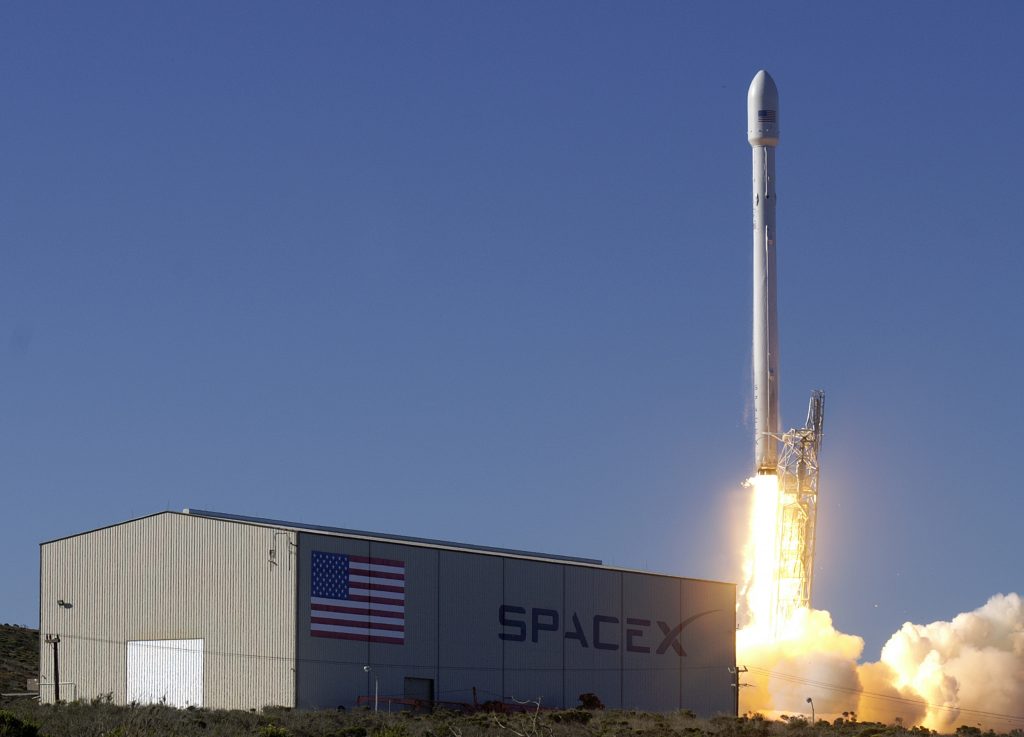After a long run-in with epic fails and misses in the past, SpaceX’s Falcon 9 rockets are finally tasting sweet success. This year alone Elon Musk’s aerospace manufacturer and space transport company achieved a perfect score for all nine of its landing attempts for the Falcon 9 rocket. And now, some of the leading aerospace players have expressed interest in using these recovered SpaceX reusable rockets for their flying missions in future. This includes NASA, US Air Force, Iridium, and Spacecom.
The growing interest of leading player in reusable rockets could well mark the beginning of a paradigm phase change in the space industry.
According to the Teslarati, all the four takers have been exploring ways to induct the reusable Falcon 9 hardware into specific projects. For instance, NASA has been exploring ways to deploy the reused Falcon 9 hardware for its cargo Dragon mission CRS-13, scheduled for December 4. If NASA decides to go ahead with using the reusable rocket, SpaceX would deploy its Falcon 9 first stage as well as the Dragon spacecraft for the mission. This could mark a giant leap toward its ultimate goal of optimal reusability.
While NASA has continued to be SpaceX’s biggest customer and supporter through the years, the company is also drawing interest from unlikely quarters. The US Space Command head General Jay Ramond was recently quoted by Bloomberg as saying that not considering flying on reused rockets would be “absolutely foolish” and “dumb”. He also suggested that the process for certifying the Falcon 9 rockets for Air Force missions was already in works.
The next big taker on the docket is satellite communications provider Iridium that has already entered into a contract with SpaceX for using the Falcon 9 reusable rockets for eight missions to launch the next generation Iridium NEXT constellation. Iridium Communications has even made a press announcement in this regard, declaring that the NEXT-4 and NEXT-5 missions will fly atop reused Falcon 9 first stages, starting as early as December 22 when NEXT-4 is scheduled to be launched.
SpaceX has also found an unexpected taker in Israeli communications satellite operator Spacecom, which recently announced its collaboration with the company for using the Falcon 9 rockets for the launch of its Amos-17 and Amos-8 communications satellites in 2019 and 2020, respectively. This despite the September 2016 fiasco where a Falcon suffered a catastrophic failure, destroying the Spacecom’s Amos-6 payload in the bargain. Going by the binding terms of the contract, SpaceX offered to either return satellite operator’s $50m deposit or provide it a second launch for free. Spacecom settled for the latter and decided to nd out its consequent satellites aboard Falcon 9s.
Each of these collaborations is markedly different in nature and groundbreaking in its own right. With some of the projects likely to take off by end of this year, SpaceX is definitely headed for Cloud 9.




